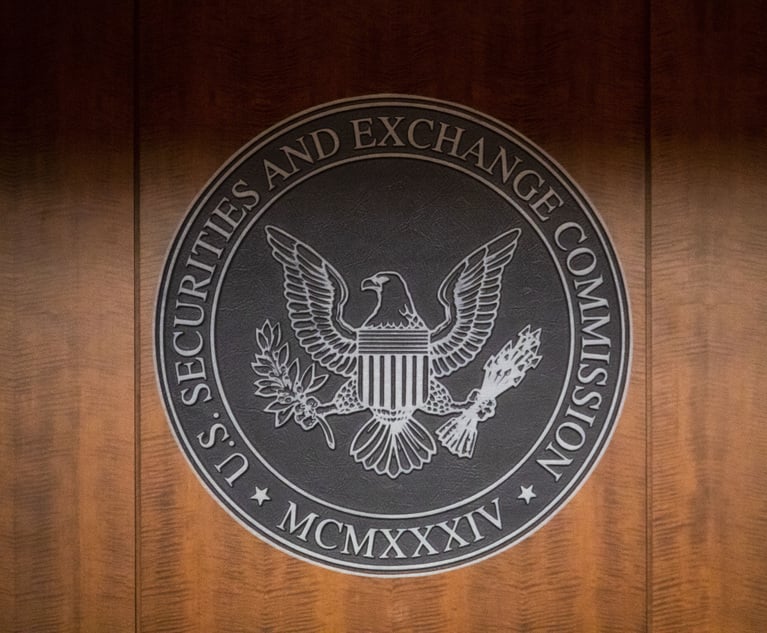Investors have pushed more than 120 public companies in the U.S.to reveal previously confidential details of their politicalspending even as regulators remain deadlocked over whether tomandate such disclosures.
|Thirty-one companies — up from 28 last year — will holdshareholder votes in 2013 on resolutions calling for disclosure ofhow much they spend to influence politics, according to theWashington-based Center for Political Accountability, which helpswrite the resolutions. The first of those votes, at Humana Inc.'sannual meeting, is scheduled for today.
|Another 16 companies, including Boeing Co., KeyCorp, QualcommInc., and Southwest Airlines Co., have agreed to provide investorswith data on their political spending this year in an effort toavoid shareholder votes mandating the disclosures.
|State pension funds and activist investors are increasinglyusing their sway as shareholders to dislodge details aboutcorporate political funds even if it is not required by law. Thesedisclosures include so-called “dark money” provided to trade groupsand third parties that aren't required to name their donors.
|“This private ordering is making good progress,” said AnneSheehan, director of corporate governance at the California StateTeachers' Retirement System, the U.S.'s second-largest governmentpension fund by total assets. “Some have done a very good job ofdisclosure.”
|Debate over corporate political spending gained new attentionafter the Supreme Court ruled in a 2010 case known as CitizensUnited that companies and unions could spend unlimited money onelection ads.
|Political-activity resolutions generated more shareholder voteslast year than any other topic, including efforts to separate theroles of chief executive and chairman, according to a paperpublished this month in The Georgetown Law Journal by Lucian A.Bebchuk of Harvard Law School in Cambridge, Massachusetts andRobert J. Jackson Jr. of Columbia Law School in New York.
|Those resolutions helped push the Securities and ExchangeCommission to announce in January that it would consider requiringpublic companies to disclose political spending.
|The measure divides the SEC, with the five-member commission'stwo Republicans opposed. One commissioner whose support is neededto advance it, Democrat Elisse B. Walter, said she doesn't considerit a priority for the agency, which is still working to completeregulations required by Congress.
|Parties Split
|The SEC's announcement also divided Capitol Hill, where manyDemocrats express support for it. In a letter sent to new SECChairman Mary Jo White yesterday, a group of 66 House Republicanssought assurance the agency won't move forward with a rule.
|“If the SEC embarks on this partisan rulemaking path during atime of fiscal tightening, it would raise serious questions aboutthe Commission's political agenda and stewardship of taxpayerfunds,” said Kansas Republican Representative Kevin Yoder, whocoordinated the letter.
|Current law requires public companies to report donations madethrough political action committees, but not contributions to thirdparties, including industry groups such as the U.S. Chamber ofCommerce that conduct advocacy campaigns and fund political ads forand against candidates.
|Groups that don't disclose their donors reported spending $308million to influence elections during the 2012 cycle, according tothe Center for Responsive Politics, a Washington-based nonpartisangroup that tracks money in politics. For instance, Crossroads GPS,an outside group co-founded by Republican political strategist KarlRove that doesn't disclose donors, spent $71 million on ads lastyear that mostly targeted Democratic candidates.
|Proponents, including public pension funds and labor unions, sayinvestors deserve to know about corporate political activity thatcould offend customers and, if controversial enough, impact acompany's bottom line. Skeptics, including many business tradegroups, say political spending is modest compared to other expensesand won't affect profits or returns to shareholders.
|Companies such as Target Corp., the second-largest U.S. discountretailer, have sparked controversy with donations to politicalgroups that proved unpopular with some customers and shareholders.In 2010, Minneapolis, Minnesota-based Target gave $150,000 to anonprofit group that supported a Minnesota gubernatorial candidatewho opposed same-sex marriage, prompting public protests and anapology by the company's CEO.
|“For many investors, the idea that their money will be spent tosupport a political message that they abhor has special meaning,”said Jackson, who co-wrote an August 2011 petition asking the SECto regulate corporate political donations.
|Citizens United
|The Supreme Court's Citizens United ruling freed corporationsand labor unions to spend unlimited money in candidate elections,with the majority of justices deciding that such spending isequivalent to free speech. The justices also agreed that Congresscould pass a law to require companies to disclose their spending onelection ads, giving voters context to judge the ads.
|Opponents of an SEC rule say most political spending is alreadydisclosed through federal, state and local government websites.Moreover, only 30 percent of shareholders support thepolitical-spending disclosure proposals, according to InstitutionalShareholder Services, a Rockville, Maryland-based firm that tracksand makes recommendations on resolutions.
|“This is probably one of the hottest topics right now incorporate governance and disclosure, but the fact is thatrank-and-file investors don't really care about these issues,” saidKeir D. Gumbs, a partner at Covington & Burling LLP'sWashington office who advises companies on shareholderresolutions.
|Companies have agreed to enhance transparency of politicalspending even without a resolution getting majority support, saidBruce Freed, president of the Center for Political Accountability.The CPA, which describes itself as non-partisan, has receivedfunding from George Soros' Open Society Institute and theRockefeller Brothers Fund, according to its website.
|In some cases, public companies have agreed to share moreinformation when votes in favor of the resolution exceed 30percent, Freed said. Shareholders of Louisville, Kentucky-basedHumana and AT&T Inc. in Dallas are scheduled to vote this weekon resolutions calling for reporting of any political donations orexpenditures made with company funds.
|In response to such pressure, some companies have put morerestrictions on donations to trade groups and other nonprofits,Freed said. Boeing, for instance, tells trade groups and nonprofitsthat its contributions can't be used for political expenditures.Last year, Boeing asked outside groups to attest to compliance withthe policy.
|'More Walls'
|“Companies are placing more and more walls on their politicalspending,” Freed said. “Disclosure in many cases means companiesare limiting what they are spending.”
|Gumbs, the Covington & Burling lawyer, disagreed, sayingit's not clear companies have reduced contributions as a result ofdisclosure campaigns. However, businesses are asking their tradegroups more questions about whether their funding will used forpolitical ends, Gumbs said.
|Pension funds active in such efforts include the New York StateCommon Retirement Fund, which sued Qualcomm in January seeking toinspect the telecommunications company's records of donations tooutside political groups. The New York fund withdrew the suit inFebruary after San Diego-based Qualcomm agreed to disclose allcontributions.
|Qualcomm's disclosure showed that it contributed $1.84 millionto trade associations, including $385,000 to the U.S. Chamber, and$90,000 to advocacy groups such as Immigration Voice, which pushesto end green-card backlogs.
|Reports by other companies, including Aflac Inc. and 3M Co.,also show donations to the Chamber. St. Paul, Minnesota-based 3Mreported giving $515,500 to the Chamber last year, according to areport posted on the company's website.
|Freed said the reports are meaningful because investors canconnect them to the Chamber's independent expenditures. The Chamberspent $32.2 million during the 2012 election cycle on adsadvocating for or against candidates, according to the Center forResponsive Politics.
|“With company money going into a pot, that means some of thatmoney is being used for” political purposes, unless the corporationrestricts it, Freed said.
|Proponents of an SEC rule say voluntary disclosure isn't asubstitute for regulation, because the agreements can't be enforcedand don't yield the same information for all participants. A reviewlast year of 75 companies' compliance with their disclosureagreements found that 10 were in “significant non-compliance” withthe terms, according to CPA.
|'All Over'
|“One of the strongest reasons it's so clear the SEC needs tostep in is that the disclosures we are getting are all over theplace,” said Jackson, the Columbia law professor.
|David Hirschmann, director of the Chamber's Center for CapitalMarkets Competitiveness, said the SEC could hurt its relationshipswith lawmakers by trying to advance the petition.
|“Given what the SEC has on its plate, to insert it into thepolitics game would be a mistake,” Hirschmann said. “It wouldweaken the SEC's position in terms of attracting additionalresources” from Congress.
|The SEC announced in January that it could propose a rule assoon as this month. Groups supporting the petition, including theCouncil of Institutional Investors and the American Federation ofState, County and Municipal Employees, note that more than 500,000comments have been filed in response to the request and called onWhite, who took over as SEC chairman on April 10, to make it a toppriority. White, 65, hasn't expressed a view on the issue,spokesman John Nester said.
|SEC Commissioner Daniel M. Gallagher, 40, a Republican, saidpolitical spending isn't “material,” meaning it doesn't influencean investor's willingness to own a company's stock. In aninterview, Gallagher equated a political-spending rule withregulations requiring companies to report their use of so-calledconflict minerals mined in the Democratic Republic of Congo.
|“We should be done with mandating non-material disclosures,”Gallagher said. “The more we adulterate it, the less important thatdisclosure is to investors.”
|Democratic appointee Luis A. Aguilar, 59, has publicly advocatedfor the rule, while fellow Democrat Walter, 63, hasn't publiclystated her position.
|“It's not high on our agenda,” Walter said in an interview. “Ido think it's an important question and I would like to talk tomore investors about their opinion.”
|Bloomberg News
|Copyright 2018 Bloomberg. All rightsreserved. This material may not be published, broadcast, rewritten,or redistributed.
Complete your profile to continue reading and get FREE access to Treasury & Risk, part of your ALM digital membership.
Your access to unlimited Treasury & Risk content isn’t changing.
Once you are an ALM digital member, you’ll receive:
- Critical Treasury & Risk information including in-depth analysis of treasury and finance best practices, case studies with corporate innovators, informative newsletters, educational webcasts and videos, and resources from industry leaders.
- Exclusive discounts on ALM and Treasury & Risk events.
- Access to other award-winning ALM websites including PropertyCasualty360.com and Law.com.
*May exclude premium content
Already have an account? Sign In
© 2024 ALM Global, LLC, All Rights Reserved. Request academic re-use from www.copyright.com. All other uses, submit a request to [email protected]. For more information visit Asset & Logo Licensing.







